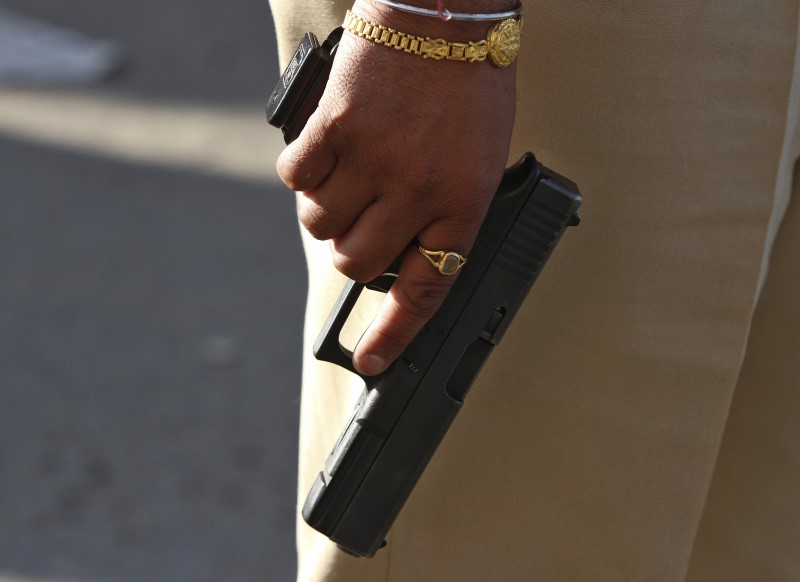By Rupam Jain Nair and Krista Mahr
NEW DELHI (Reuters) - Indian security forces have killed six militants who launched an assault on a military air base in northern India that killed seven security personnel and injured 22, Defence Minister Manohar Parrikar said on Tuesday.
Speaking at the air base, Parrikar declined to say definitively that no more militants were at large until the four-day-old operation to clear the facility was over. He said those efforts could end as soon as Wednesday.
While praising Indian security forces for eliminating the attackers, Parrikar also alluded to "some gaps" in security that allowed the attackers to reach the base in the northwestern state of Punjab.
It has emerged that the militants hijacked a police officer's car but that his call to a colleague, after he was dumped by the roadside, was not taken seriously. The National Investigation Agency, a central body set up to probe such cross-border attacks, is investigating.
The apparently well-planned assault on a strategic military target just 25 km (16 miles) from the border has put pressure on an attempt by prime ministers Narendra Modi and Nawaz Sharif to improve historically fraught relations between the two nuclear-armed neighbours.
The Indian leader paid a surprise birthday visit to his Pakistani counterpart in late December. In a sign that both want the incipient dialogue to continue, Sharif called Modi on Tuesday to convey his "sorrow and grief" at the losses from the air base attack.
Pakistan will investigate leads and information provided by the government of India, Sharif's office said in a readout of the call. Both premiers are resolved to fight terrorism together, an aide also said.
According to a statement issued by the Indian government, Modi called for "firm and immediate action against those responsible for the air base attack", based on specific and actionable information provided to Pakistan.
A round of talks between the two countries' foreign secretaries has been tentatively scheduled for Jan. 15.
ENGULFING INDIA
The United Jihad Council (UJC), an alliance of pro-Pakistan militant groups based in the Pakistani-administered part of the divided Kashmir region, has claimed responsibility for the assault.
The group's leader warned that their attacks "can engulf all of India" if the issue of Kashmir's divided rule is not resolved.
"Whenever they want, wherever they want, they can target the enemy," UJC leader Syed Salahuddin said in a voice recording released by a group spokesman on Tuesday. Salahuddin's voice was recognised by a Reuters reporter from previous messages and public appearances.
The claim of responsibility has, however, met a sceptical response among India's security establishment, which blames another group called Jaish-e-Mohammed (Army of Mohammed).
That group was founded by Masood Azhar after he was released by India in 1999 in exchange for passengers on an Indian airliner that was hijacked.
The head of India's National Investigation Agency, Sharad Kumar, told reporters in New Delhi that the attackers came from Pakistan but did not elaborate.
"I REALISED THAT THEY WERE TERRORISTS"
The day before the assault, a police officer returning from a temple was abducted by a group of heavily armed men speaking Urdu, among other languages, he said on Tuesday.
"The minute I saw them I realised that they were terrorists," Police Superintendent Salwinder Singh told media.
"One of the gunmen snatched my phone and made calls to Pakistan," Singh said. Urdu, widely spoken in Pakistan, can be mostly understood by Hindi speakers.
Phone records indicate the perpetrators used Singh's phone inside the air base by mid-afternoon on Jan. 1, according to the Indian Express, 12 hours before they were detected through aerial surveillance.

It remains unclear exactly how the attackers infiltrated the fortified base, which has a 24-km (15-mile) perimeter surrounded by a 3-metre (10-foot) wall topped with concertina wire.